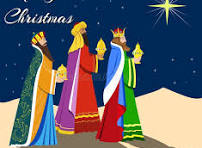Solid Gold

When I went to my first parish, I set out to visit all the parishioners. One older widowed lady welcomed me warmly, and said she had a question for me. "What is it?" I asked. She said, “Are the streets really gold?” I realized she was referring to the description of heaven in the book of Revelation. “Well”, I said, with seven years of study just behind me, “I think it’s more of a picture than a description.” “Oh”, she said, “So you’re one of those.”
Over the years we were able to respect our differences and became friends. But to put it as Churchill might have, there were two positions here. One was, “You madam are a literalist.” The other was, “And you sir are a pictorialist.”
My earliest religious education was at a little country hall where on Sundays two brothers from the Salvation Army ran a Sunday School. We sang a lot. We sang “Hear our pennies dropping, Listen while they fall, Every one for Jesus, He shall have them all.” We also sang, “Heaven is better than this, Oh my what joy what bliss, Walking on the streets of solid gold, Living in the land where you never grow old…” I remember being puzzled about this talk of heaven, so one day I consulted my mate Douglas. It was said his family had a Bible and talked about religion. “Douglas”, I said, “do you think heaven has streets of gold?” Douglas pondered for a bit. “Doubt it” he said, “Too heavy.” Then he added, “But what’s got me really worried is those pennies.”
Here's one of the major differences in how we regard religious belief. Some are literalists and see things as straightforward and simple. Regardless of reason and commonsense, things are simply as they are described in the Bible. (Or actually often in hymns and songs. Never underestimate the power of hymn writers to invent scenarios.) But others like me think the Bible is a book of pictures, a lot of poetry, much metaphor and many subtle allusions.
The philosopher who has helped me most to understand religious language is Ludwig Wittgenstein. I discovered him at University, and I’ve valued his linguistic insights ever since. Wittgenstein was German born but taught at Cambridge in the 1950s.He was one of the first philosophers to tell us that language does not describe and explain reality: it actually creates it.
Wittgenstein once said about religion: “Russell and the parsons between them have done infinite harm, infinite harm.” He was criticizing and linking Bertrand Russell, one of the most celebrated antireligious liberal rationalists of the day, with the very clerics Russell so despised. Why? Because they were both literalists. The parsons had tried to convince their congregations about things that, literally, are unbelievable. Russell had criticized a form of religion that was literal, and every intelligent believer could see was something else. Poetry and picture and metaphor and allusion. So:” Russell and the parsons between them have done infinite harm.”
Wittgenstein himself saw that language is very complex. Words don’t name things, they are players in a language game. There are hundreds of these language games, and words operate differently indifferent ones. If we start trying to use rules from one language game in a different one, we get very confused. In the 1930s the logical positivist philosophers applied the rules of science to religion. Statements, they said, had to be verifiable, and have consistent meaning. This effectively eliminated all religious statements. However it also eliminated all poetry, all fiction, all speculative talk, all talk about feelings, and most of psychiatry. Many people thought something was wrong here. Wittgenstein’s answer to this was to say, when it comes to religion, “This language game is played.” And it’s a different one to scientific description or logic or mathematics or travel instruction. It’s more like poetry and imagination and allusion and metaphor and parable.
At the end of 1972 my class of divinity students were finishing our three years at Knox Theological Hall in Dunedin. Having completed all the academic work, we were required to actually take a service at a local church. A report would be written by a local minister for the Presbytery, to see if we academic successes could lead worship adequately. This was a prerequisite to ordination. I was assigned to the parish of the Assembly Doctrine Committee convener. 1970 to 1973 were the years that Cat Stevens wrote and performed his amazing and creative repertoire of songs. Moonshadow. Peace Train. Father and Son. Miles from Nowhere. The Wind. And of course, he performed but didn’t write Morning has Broken. Eleanor Farjeon, a writer of children’s stories and poems, wrote it in 1931. Stevens appropriated it and made it famous, in the top 10every week in our final months at Knox. My best mate and I decided we would be radicals, and include Morning has Broken as one of the hymns in our Crit service. All the others, of course, had to come from the Presbyterian Church Hymnary. The congregation were surprised but coped okay with singing a new and popular song. Well, a 1931 hymn really. Fortunately the Doctrine convener had a broad mind. After the service a dour Dunedin gentleman approached me and said, “What does that new song really mean?”
I had to confess I didn’t know, and I’m still not a tall sure. It’s about Jesus strolling in the garden of Eden on the day of creation. It’s about a blackbird that may or may not be the first one. It’s about rain, and growth, and the re-creating of the earth. And it’s one of the most loved and popular hymns ever written. Unscientific. Illogical. Impossible. And beautiful and wonderful. This language game is played.
Or take those verses from Psalm 139. That amazing picture of care and knowledge and of being loved and known unconditionally. A literalist will ask: But is it true? Is there such a caring loving creator? What I’m saying to you this morning is, don’t ask that question. Just enjoy, revel in, the concept, the picture, the feeling of such a state of being loved. This is central core benign monotheism. This language game is played.
One of the religious concepts that fascinated Wittgenstein was that of the last judgement. This is a huge thing in the Hebrew Bible, with hundreds of references, and it features in Jesus’ thinking too. But Jesus turns the idea of judgement around. Instead of God judging us, at the judgement we find ourselves already judged by how we have acted towards the needy of the world. Not by how much we’ve believed, or gone to church. Just how well we’ve loved our neighbour.
Wittgenstein thought that the literal idea of a judgement day makes little sense. But the idea of living your life as though there will be an accounting, a judgement, makes great religious and moral sense. To live with a sense of accountability will make a big difference to how I treat others, how I treat the world, even how I treat myself. Within sound, biblical, Christian tradition, this language game is played.
What I’ve tried to do this morning is offer you an alternative way of thinking, out of my own exploring and wrestling with belief. For some I’m sure what I’ve said will be opaque and strange and not make sense. That’s far more to do with my inability to explain well than your intelligence. For others what I’ve said will be irrelevant because you already have your way of making sense of belief and faith. That is absolutely and totally okay. Perhaps for others some of what I’ve shared will ring true to your instincts about belief. That it’s not a literal thing. That it has its own rules and logic and realities. And that it unlocks for us deep and wonderful and poetic places we can explore and enjoy. If that should happen for you, you just might find yourself saying: “Aha! So! This language game is played.”




